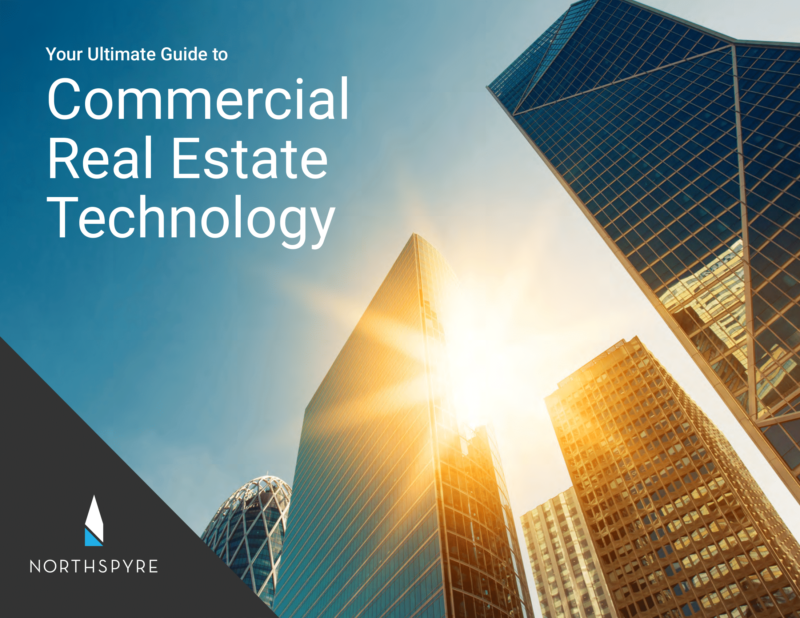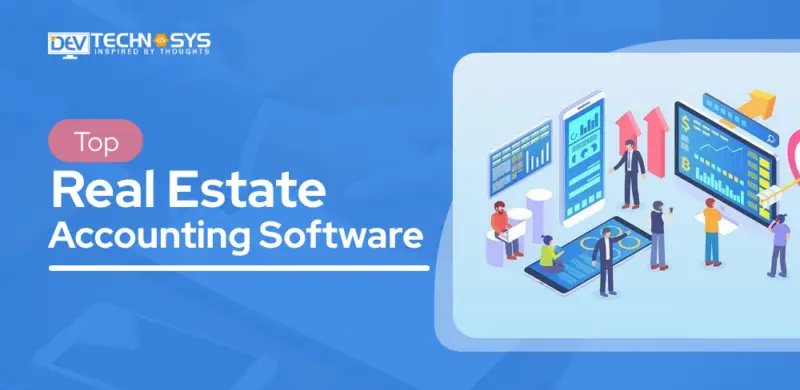Introduction
In the fast-paced world of commercial real estate, managing finances efficiently is crucial for success. This is where commercial real estate accounting software comes into play. But what exactly is commercial real estate accounting software?
Mục lục
- 1. Introduction
- 2. Features of Commercial Real Estate Accounting Software
- 3. Factors to Consider When Choosing Commercial Real Estate Accounting Software
- 4. Popular Commercial Real Estate Accounting Software Solutions
- 5. Implementation and Best Practices for Commercial Real Estate Accounting Software
- 6. Conclusion
Commercial real estate accounting software is a digital solution designed specifically to streamline and automate financial processes within the commercial real estate industry. It encompasses a range of features tailored to meet the unique accounting needs of property owners, managers, and investors.
Now, you might be wondering, why should I invest in commercial real estate accounting software? Well, let me tell you, the benefits are endless!

First and foremost, using software for commercial real estate accounting allows you to save time and increase productivity. No more manual data entry or tedious calculations. With just a few clicks, you can effortlessly generate financial reports, track rent payments, and manage budgets.
But that’s not all! Accuracy and precision are fundamental in the accounting world, and commercial real estate accounting software ensures just that. Say goodbye to human errors and inconsistencies. The software automates calculations, reduces the risk of mistakes, and provides real-time data analysis for better decision-making.
Moreover, financial transparency and visibility are crucial for any business, and commercial real estate is no exception. With the right software, you gain a comprehensive view of your financial health, enabling you to identify trends, monitor expenses, and optimize profitability.
But wait, there’s more! By leveraging commercial real estate accounting software, you can enhance collaboration and communication within your team. You no longer have to rely on manual processes and endless email threads. The software facilitates seamless data sharing and allows multiple users to work simultaneously, fostering teamwork and efficiency.
In conclusion, commercial real estate accounting software is a game-changer for anyone involved in the industry. It simplifies complex financial tasks, improves accuracy and transparency, and fosters collaboration. So, why wait? Let’s delve deeper into the features, factors to consider, and best practices for choosing and implementing the perfect software solution for your commercial real estate needs.
Features of Commercial Real Estate Accounting Software

When it comes to commercial real estate accounting, having the right software with the right features is essential. Let’s explore the key capabilities that top-notch commercial real estate accounting software offers:
A. Financial Management Capabilities
- General ledger: This feature allows you to track and manage all financial transactions in one centralized system. It provides a comprehensive overview of income, expenses, and assets, ensuring accurate financial records.
- Accounts payable and receivable: With this functionality, you can easily manage invoices, payments, and collections. It automates the process of tracking and recording both incoming and outgoing funds, providing a clear picture of your cash flow.
- Budgeting and forecasting: Commercial real estate accounting software enables you to create and monitor budgets, forecast future expenses, and analyze financial performance. This feature helps you make informed decisions and stay on top of your financial goals.
B. Lease Management Functionality
- Lease administration: This feature simplifies lease management by storing all lease-related information in a centralized database. You can easily track lease terms, renewal dates, and rent escalations, ensuring compliance and minimizing lease-related risks.
- Rent tracking and invoicing: With this functionality, you can effortlessly track rent payments, generate invoices, and send reminders to tenants. It streamlines the rent collection process, reducing manual efforts and improving cash flow management.
- CAM (Common Area Maintenance) charges management: Commercial real estate accounting software allows you to accurately calculate and allocate CAM charges to tenants. It automates the process of generating CAM statements and ensures transparency in expense sharing.
C. Reporting and Analytics Tools
- Customizable financial reports: This feature enables you to generate tailored financial reports, such as profit and loss statements, balance sheets, and cash flow statements. You can customize the reports to meet your specific needs and gain valuable insights into your financial performance.
- Real-time data analysis: Commercial real estate accounting software provides real-time data analysis capabilities, allowing you to monitor key financial metrics and identify trends. This helps you make data-driven decisions and seize opportunities in a timely manner.
- Performance metrics tracking: With this functionality, you can track and measure performance metrics, such as occupancy rates, rental growth, and return on investment. It allows you to evaluate the success of your commercial real estate investments and make informed strategic decisions.
In the next section, we will discuss the crucial factors to consider when choosing commercial real estate accounting software. So, buckle up and get ready to make a well-informed decision that suits your unique business needs.
Factors to Consider When Choosing Commercial Real Estate Accounting Software

When it comes to selecting the right commercial real estate accounting software, there are several factors you should consider. Let’s explore these factors to ensure that you make an informed decision:
A. Scalability and Flexibility
Commercial real estate businesses often experience growth and expansion. Therefore, it is crucial to choose accounting software that is scalable and can accommodate your future needs. Consider whether the software can handle an increasing number of properties, tenants, or users. Additionally, flexibility is key. Look for software that allows customization and adapts to your unique accounting requirements.
B. Integration Capabilities with Other Software Systems
Efficient data management is essential for streamlined operations. Look for accounting software that seamlessly integrates with other software systems you use, such as property management software or CRM tools. Integration eliminates the need for manual data entry and ensures data consistency across various platforms.
C. User-Friendliness and Ease of Implementation
You don’t want to invest in software that requires extensive training or complex implementation processes. Opt for user-friendly accounting software that is easy to navigate and understand. Additionally, consider the implementation process. How long will it take to set up the software? Is technical support available during the implementation phase?
D. Security Measures and Data Backup Options
Protecting sensitive financial data is paramount. Ensure that the accounting software you choose offers robust security measures and encryption protocols to safeguard your information from unauthorized access. Additionally, data backup options are crucial to prevent data loss in case of system failures or other unforeseen circumstances.
E. Cost-Effectiveness and Return on Investment
Budget considerations are vital when choosing commercial real estate accounting software. Compare pricing plans and licensing models to find a solution that aligns with your budget. However, don’t solely focus on the upfront cost. Evaluate the return on investment (ROI) the software can provide. Will it save you time and resources in the long run? Consider the long-term benefits and potential cost savings before making a decision.
By carefully evaluating these factors, you can choose the best commercial real estate accounting software that meets your specific needs and sets your business up for success. Now, let’s move on to exploring some popular software solutions in the market.
Popular Commercial Real Estate Accounting Software Solutions

When it comes to choosing the right commercial real estate accounting software, there are several options available in the market. Let’s take a closer look at three popular solutions: Software A, Software B, and Software C.
A. Software A
Software A is a robust accounting solution specifically tailored for the commercial real estate industry. It offers a wide range of features to streamline financial management and improve efficiency. Some key features of Software A include:
- General ledger: Software A provides a comprehensive general ledger module that allows you to track and manage all financial transactions in one place.
- Accounts payable and receivable: With Software A, you can easily handle accounts payable and receivable processes, including invoicing, payment tracking, and vendor management.
- Budgeting and forecasting: Software A offers powerful budgeting and forecasting tools that help you plan and analyze financial performance, ensuring you stay on top of your financial goals.
In terms of pricing, Software A offers flexible options to suit different business sizes and needs. Pricing details can be obtained directly from their website or by contacting their sales team. Customer reviews and ratings for Software A have been overwhelmingly positive, highlighting its user-friendly interface, robust features, and excellent customer support.
B. Software B
Software B is another top contender in the commercial real estate accounting software market. It offers a comprehensive suite of tools designed to simplify financial management processes. Here are some key features of Software B:
- General ledger: Software B’s general ledger module allows you to efficiently track and manage financial transactions, ensuring accurate financial records.
- Accounts payable and receivable: With Software B, you can easily handle accounts payable and receivable tasks, such as invoice generation, payment tracking, and vendor management.
- Customer reviews and ratings: Software B has received positive feedback from its users, with customers praising its intuitive interface, robust reporting capabilities, and seamless integration with other software systems.
For pricing information, it is recommended to visit Software B’s website or reach out to their sales team directly. They offer different pricing options to cater to various business needs.
C. Software C
Software C is a popular choice among commercial real estate professionals due to its comprehensive features and user-friendly interface. Here are some key features of Software C:
- General ledger: Software C provides a reliable general ledger module that allows you to manage financial transactions efficiently and accurately.
- Lease management functionality: With Software C, you can easily handle lease administration, rent tracking, and CAM charges management, ensuring smooth operations.
- Customer reviews and ratings: Customers have praised Software C for its robust reporting capabilities, ease of use, and exceptional customer support.
To get detailed pricing information for Software C, it is recommended to visit their website or contact their sales team directly. They offer various pricing options to accommodate different business sizes and requirements.
In conclusion, Software A, Software B, and Software C are all highly regarded commercial real estate accounting software solutions. Each offers a range of key features, competitive pricing options, and positive customer reviews. When selecting the right software for your business, consider your specific needs, budget, and integration requirements to make an informed decision.
Implementation and Best Practices for Commercial Real Estate Accounting Software

Pre-implementation planning
Before diving into the implementation of commercial real estate accounting software, it’s essential to engage in thorough pre-implementation planning. This phase sets the foundation for a successful transition to the new software. Here are some key steps to consider:
- Assessing accounting needs and goals: Start by evaluating your specific accounting requirements and goals. Identify pain points in your current processes and determine what you expect from the software. This will help you select a solution that aligns with your business objectives.
- Data migration and system setup: Once you’ve chosen the right software, it’s time to migrate your existing data and set up the system. Ensure a smooth transition by carefully transferring data from your old system to the new one. Take advantage of any data import tools provided by the software vendor to simplify the process.
- Training and support for users: A successful implementation heavily relies on user adoption and proficiency. Make sure to provide adequate training to your team members to familiarize them with the software’s features and functionalities. Additionally, establish a support system where users can seek assistance or resolve any issues they encounter during implementation.
Streamlining accounting processes with software
Now that your commercial real estate accounting software is up and running, it’s time to streamline your accounting processes and maximize its potential. Here are some best practices to optimize your software usage:
- Automation of routine tasks: Take advantage of the automation capabilities offered by the software. Set up automated workflows for routine tasks such as generating invoices, tracking rent payments, and reconciling accounts. This not only saves time but also minimizes the risk of errors.
- Centralized data management: Utilize the software’s centralized database to store all financial information in one place. This ensures data consistency and eliminates the need for manual data entry across multiple systems or spreadsheets. Centralized data management also improves data accuracy and provides a holistic view of your financials.
- Real-time collaboration with team members: Leverage the collaborative features of your software to enhance teamwork and communication. Enable real-time access to financial data for all relevant team members, allowing them to collaborate seamlessly on projects, budgets, and reporting. This fosters transparency and enables efficient decision-making.
By following these implementation best practices, you can make the most out of your commercial real estate accounting software. From careful planning to streamlining processes, these steps will help you unlock the full potential of the software and achieve greater efficiency and accuracy in your accounting operations.
Conclusion

In the dynamic world of commercial real estate, utilizing the right tools and technologies is paramount to staying ahead of the curve. When it comes to managing your finances, commercial real estate accounting software is the ultimate solution.
By now, you understand the definition and importance of commercial real estate accounting software. It offers a range of benefits that can revolutionize your financial operations. From saving time and increasing productivity to ensuring accuracy and precision, the advantages are undeniable.
But remember, not all software solutions are created equal. When choosing the perfect commercial real estate accounting software for your business, consider factors such as scalability, integration capabilities, user-friendliness, security measures, and cost-effectiveness. It’s important to find a solution that aligns with your unique accounting needs and goals.
To help you kickstart your search, we’ve highlighted some popular commercial real estate accounting software solutions, each with its own key features, pricing options, and customer reviews. Take the time to explore these options and read reviews to gain insights from other users in the industry.
Implementing commercial real estate accounting software requires careful planning and best practices. Pre-implementation steps such as assessing your needs, migrating data, and providing adequate training are critical to a successful integration. Once implemented, you can streamline your accounting processes, automate tasks, and collaborate in real-time with your team.
In conclusion, commercial real estate accounting software is a powerful tool that can revolutionize your financial management. It offers efficiency, accuracy, transparency, and collaboration, all essential for success in this competitive industry. So, don’t hesitate to explore and select the best commercial real estate accounting software for your specific needs. Boost your financial operations and take your commercial real estate business to new heights with estate.ebest.vn!